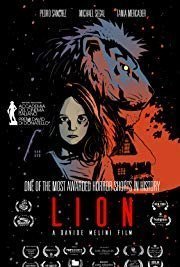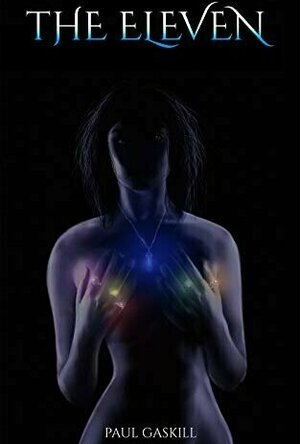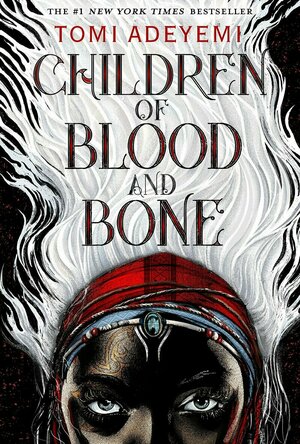Search
Search results
Lucy Buglass (45 KP) rated Lion (2017) in Movies
Jun 20, 2019
Upon discovering this short film, I was impressed with how well it had performed. During its first year of distribution, it has won 126 awards at a variety of film festivals which is quite the selling point. Walking in to the film, I didn’t know much about it but the air of mystery made my viewing experience even better. The film is set in an isolated cabin, on a snowy night, which creates the perfect backdrop for a horror tale…
From the very first scene you can tell this cabin is not a happy place to be. Straight away we’re created with sounds of domestic violence, making the viewer feel instantly uncomfortable. The father in the film is repulsive and lives in a squalor, with cigarette butts, leftover pizza and empty cans of beer dotted everywhere. Michael Segal really brought this character to life, showing us that not all villains are supernatural or machete wielding psychopaths. Some evil can be found in the average home, behind closed doors, where violence takes over. Sometimes humans can be more terrifying than anything else.
The way Lion deals with domestic violence, particularly against children, was done incredibly well. It’s not an easy topic to cover but this short makes an impact without going too far and making it gratuitous. Part of what makes this film so good is what you don’t see on screen, and how your imagination runs wild. It has a slow burning narrative that builds up the suspense and finally unleashes the climactic moment with only a few minutes to spare, providing closure and satisfaction for the spectator.
I really liked the use of special effects throughout the film, because they blended in nicely with the rest of the scene and weren’t overdone at any point. Cinematically it hits all the right notes for a horror film through it’s use of low-lighting, tense creeping moments, and an excellent use of music. Jump scares and gore weren’t needed in Lion, because it manages to deliver real horror in a much more subtler, but effective way. The presence of the lion throughout was a good motif to use as well, as they’re synonymous with courage and being a fighter. You’ll see what I mean when you watch it.
Lion is an incredibly important short film that I believe is a must watch, even for those who don’t tend to reach for horrors. The final card at the end reiterates the important message that is present throughout the film, and it really resonated with me. It’s a film with fantasy elements, yet still deep rooted within reality that it makes you want to stand up and take action in any way you can.
https://jumpcutonline.co.uk/lion-short/
From the very first scene you can tell this cabin is not a happy place to be. Straight away we’re created with sounds of domestic violence, making the viewer feel instantly uncomfortable. The father in the film is repulsive and lives in a squalor, with cigarette butts, leftover pizza and empty cans of beer dotted everywhere. Michael Segal really brought this character to life, showing us that not all villains are supernatural or machete wielding psychopaths. Some evil can be found in the average home, behind closed doors, where violence takes over. Sometimes humans can be more terrifying than anything else.
The way Lion deals with domestic violence, particularly against children, was done incredibly well. It’s not an easy topic to cover but this short makes an impact without going too far and making it gratuitous. Part of what makes this film so good is what you don’t see on screen, and how your imagination runs wild. It has a slow burning narrative that builds up the suspense and finally unleashes the climactic moment with only a few minutes to spare, providing closure and satisfaction for the spectator.
I really liked the use of special effects throughout the film, because they blended in nicely with the rest of the scene and weren’t overdone at any point. Cinematically it hits all the right notes for a horror film through it’s use of low-lighting, tense creeping moments, and an excellent use of music. Jump scares and gore weren’t needed in Lion, because it manages to deliver real horror in a much more subtler, but effective way. The presence of the lion throughout was a good motif to use as well, as they’re synonymous with courage and being a fighter. You’ll see what I mean when you watch it.
Lion is an incredibly important short film that I believe is a must watch, even for those who don’t tend to reach for horrors. The final card at the end reiterates the important message that is present throughout the film, and it really resonated with me. It’s a film with fantasy elements, yet still deep rooted within reality that it makes you want to stand up and take action in any way you can.
https://jumpcutonline.co.uk/lion-short/
Gareth von Kallenbach (980 KP) rated The Expendables (2010) in Movies
Aug 8, 2019
The latest from Sylvester Stallone since 2008’s Rambo, The Expendables is a movie where the testosterone flows like enemy blood. Both movies have similar themes of redemption, regret, and courage, and also thankfully similar is that the moments of awesomeness are plentiful. The Expendables put up a lot of hype, and it had a lot to live up to with it’s cast of action star greats, but it doesn’t let the audience down. It’s not the cerebral meta-violence of Inglorious Basterds, but a simpler, old-school, fun action movie kind of violence. You can root for your favorite action hero, watch them kick a little bad-guy ass, and sit back and enjoy the show.
The characters, despite the star-studded name dropping on the film’s advertising hype, follow Barney Ross (Stallone) for the most part, and his right-hand-man Lee Christmas (Statham) a close second, with most of the other actors merely rounding out the team. Despite what would seem to be a ripoff from what they advertised on their posters, each character still gets a crowning moment of glory, albeit with less screen time than expected. In addition, these “major” side characters share frequent snide remarks that truly give each person on the team their own humorous depth of character. If you’re a fan of Jet Li or Terry Crews for example, rest assured that they all get their shining moment in the sun.
The plot, while not so simple as to be boring, surrounds an attempt by the team to overthrow a dictator in a small South American country. Complications arise, interpersonal conflicts come up, and from there, the plot takes off. Mercenary soldiers do a lot of bad things, and Stallone and co-screenwriter Dave Callaham give a good shot at prying open the inner world of some of these men as they go about their jobs, and the consequences that their actions (and often inactions) have on the way they see themselves. Granted, this is a fairly emotional touchy-feely way to describe the heart of the film, but don’t worry, these discussions are done with the stoicism and deflective humor you would expect from large men with bulging muscles and raging testosterone. The Expendables isn’t just another mindless action movie; it’s got enough going on beneath the surface to be worth watching again.
For an action blockbuster, it succeeds on most of the metrics we measure such films by, and surprisingly didn’t have many negatives. Do I care about the characters? Yes. Were there long periods without action sequences? No. Was the use of action cliche, or was it clever and original? Hilariously original at times. Was it fun? That’s an explosive yes.
The characters, despite the star-studded name dropping on the film’s advertising hype, follow Barney Ross (Stallone) for the most part, and his right-hand-man Lee Christmas (Statham) a close second, with most of the other actors merely rounding out the team. Despite what would seem to be a ripoff from what they advertised on their posters, each character still gets a crowning moment of glory, albeit with less screen time than expected. In addition, these “major” side characters share frequent snide remarks that truly give each person on the team their own humorous depth of character. If you’re a fan of Jet Li or Terry Crews for example, rest assured that they all get their shining moment in the sun.
The plot, while not so simple as to be boring, surrounds an attempt by the team to overthrow a dictator in a small South American country. Complications arise, interpersonal conflicts come up, and from there, the plot takes off. Mercenary soldiers do a lot of bad things, and Stallone and co-screenwriter Dave Callaham give a good shot at prying open the inner world of some of these men as they go about their jobs, and the consequences that their actions (and often inactions) have on the way they see themselves. Granted, this is a fairly emotional touchy-feely way to describe the heart of the film, but don’t worry, these discussions are done with the stoicism and deflective humor you would expect from large men with bulging muscles and raging testosterone. The Expendables isn’t just another mindless action movie; it’s got enough going on beneath the surface to be worth watching again.
For an action blockbuster, it succeeds on most of the metrics we measure such films by, and surprisingly didn’t have many negatives. Do I care about the characters? Yes. Were there long periods without action sequences? No. Was the use of action cliche, or was it clever and original? Hilariously original at times. Was it fun? That’s an explosive yes.
Ross (3284 KP) rated The Eleven in Books
Apr 23, 2020
Fantastic characters and original story
* I received an advance reader copy from the author and netgalley in exchange for an honest review *
Quite simply: this is a fantastic book.
The characters involved are all well-crafted and unique. They have their own back-stories that we learn over time, appreciating who they are, what they have been through and why they are how they are.
The main character is Keira, a human who spent a large part of her late childhood imprisoned, tortured and raped by the upper echelons of the government. She escapes and seeks revenge on her abusers, but needs Courage to achieve this. We first meet her as she begins her attack on the first such abuser.
She teams up with Rowan, an assassin, though the circumstances of their meeting don't become clear until later, and travels to a magical realm to track down more of her tormentors. The details of Rowan's current assignment are somewhat mysterious and only revealed later.
They eventually meet Dess, who we have started to get to know, an elf-like magical scholar who has had his own issues in adolescence and is seeking revenge on the people involved in the murder of the love of his life.
And finally we have Sirris, a funny little slave creature who seeks escape from his life of misery, abuse and servitude.
Those back-stories are gradually woven together over the course of the book in a very ambitious, and flawlessly executed, series of split timelines. Fans of Mark Lawrence's knack for splitting a story into separate timelines will love the way Gaskill has done this and more here. We have the "present" story, told from a number of different viewpoints and places, as well as each of the main characters' backstories. Over time we learn to understand how people met, what tensions there are (or could be lurking under the surface) and what each is trying to achieve. These interactions, conflicts and tensions are masterfully written and revealed.
The action throughout the book is fairly gruesome and gritty, and some of the sexual scenes of torture and rape are a little hard to take. Rather than being gratuitous on the whole though they do serve to give the reader a better appreciation for the terrors the characters have been through.
Over the course of the book we see Keira ticking the names off her list of the eleven, albeit out of sync due to the split timelines.
This really was a wonderful book that got me out of something of a slump, keeping me engaged and guessing the next revelation all the way through.
I sincerely hope Gaskill writes the hinted at follow-up book, as there certainly is scope for it in the world he has masterfully created and the cast of (surviving) characters.
Quite simply: this is a fantastic book.
The characters involved are all well-crafted and unique. They have their own back-stories that we learn over time, appreciating who they are, what they have been through and why they are how they are.
The main character is Keira, a human who spent a large part of her late childhood imprisoned, tortured and raped by the upper echelons of the government. She escapes and seeks revenge on her abusers, but needs Courage to achieve this. We first meet her as she begins her attack on the first such abuser.
She teams up with Rowan, an assassin, though the circumstances of their meeting don't become clear until later, and travels to a magical realm to track down more of her tormentors. The details of Rowan's current assignment are somewhat mysterious and only revealed later.
They eventually meet Dess, who we have started to get to know, an elf-like magical scholar who has had his own issues in adolescence and is seeking revenge on the people involved in the murder of the love of his life.
And finally we have Sirris, a funny little slave creature who seeks escape from his life of misery, abuse and servitude.
Those back-stories are gradually woven together over the course of the book in a very ambitious, and flawlessly executed, series of split timelines. Fans of Mark Lawrence's knack for splitting a story into separate timelines will love the way Gaskill has done this and more here. We have the "present" story, told from a number of different viewpoints and places, as well as each of the main characters' backstories. Over time we learn to understand how people met, what tensions there are (or could be lurking under the surface) and what each is trying to achieve. These interactions, conflicts and tensions are masterfully written and revealed.
The action throughout the book is fairly gruesome and gritty, and some of the sexual scenes of torture and rape are a little hard to take. Rather than being gratuitous on the whole though they do serve to give the reader a better appreciation for the terrors the characters have been through.
Over the course of the book we see Keira ticking the names off her list of the eleven, albeit out of sync due to the split timelines.
This really was a wonderful book that got me out of something of a slump, keeping me engaged and guessing the next revelation all the way through.
I sincerely hope Gaskill writes the hinted at follow-up book, as there certainly is scope for it in the world he has masterfully created and the cast of (surviving) characters.

Super KO Boxing 2
Games and Sports
App
BEST BOXING GAME ON THE APP STORE!! READY FOR AN OLD FASHIONED BEATDOWN? As the K.O. Kid, you...

Joan of Arc: The Image of Female Heroism
Book
The fame of Joan of Arc began in her lifetime and, though it has dipped a little now and then, she...
BookInspector (124 KP) rated Children of Blood and Bone: Book 1 in Books
Sep 24, 2020
Zelie is a protagonist in this book, but this novel is told from multiple perspectives. I absolutely loved Zelie. I loved her personality, her ambition, and bravery. Her relationship with Amari (princess of Orisha) was very amusing and intriguing to read. I loved their little girly fights. I found Inan (Prince of Orisha) very annoying, but at the same time absolutely absorbing. I really liked reading Inan’s parts in this book, his constant inner fight was a very pleasant way of distraction. Adeyemi chose her characters really well and done an amazing job in developing them. The multiple perspectives allowed the reader to have an insight into different people’s feelings, thoughts and views of the situations, which always gives me more pleasure while reading. All the characters had their individual personalities, which shined through in this book. My least favorite was, of course, the King, he was cruel, idiotic and generally a bastard. 🙂
I adored the narrative of this book. I found it very original, exceptionally written and I think it just sucks you in with all the adventures, journeys, magic and complex relationships. There are so many African cultural nuances, which absolutely mesmerized me, I love learning about different cultures. The setting of this book continuously changes, as the group travels through Orisha, and I really enjoyed the details and the way the author described the places. This novel has so many important topics incorporated, one of them being unnecessary death, and it did leave me upset and sad during those parts. 😦
Tomi Adeyemi is an incredible writer and I loved her writing style in this book. The chapters are a very decent length and the pages just fly by. Every chapter has plenty of action, and my interest was continuously kindled. In this book, the author used different language for the spells, and I would’ve loved the translation for them in the book, I just like to know what things mean. I really loved the way this novel ended, and it still haunts me, I can’t wait for another book!
There are plenty of fabulous things about this novel, that I could write and write, but I will leave it for you to figure out, all I can say, this book is absolutely magical! It has so much to offer! The characters are impeccably crafted and the plot takes you to amazing places and unforgettable adventures, where you can experience courage, love, romance, loss, and deceit. It is an absolute must read and it is a summer read for Jimmy Fallon, so it has to be good, right? 😉 I hope you will get the chance to read it and to enjoy as much as I did 🙂
I adored the narrative of this book. I found it very original, exceptionally written and I think it just sucks you in with all the adventures, journeys, magic and complex relationships. There are so many African cultural nuances, which absolutely mesmerized me, I love learning about different cultures. The setting of this book continuously changes, as the group travels through Orisha, and I really enjoyed the details and the way the author described the places. This novel has so many important topics incorporated, one of them being unnecessary death, and it did leave me upset and sad during those parts. 😦
Tomi Adeyemi is an incredible writer and I loved her writing style in this book. The chapters are a very decent length and the pages just fly by. Every chapter has plenty of action, and my interest was continuously kindled. In this book, the author used different language for the spells, and I would’ve loved the translation for them in the book, I just like to know what things mean. I really loved the way this novel ended, and it still haunts me, I can’t wait for another book!
There are plenty of fabulous things about this novel, that I could write and write, but I will leave it for you to figure out, all I can say, this book is absolutely magical! It has so much to offer! The characters are impeccably crafted and the plot takes you to amazing places and unforgettable adventures, where you can experience courage, love, romance, loss, and deceit. It is an absolute must read and it is a summer read for Jimmy Fallon, so it has to be good, right? 😉 I hope you will get the chance to read it and to enjoy as much as I did 🙂
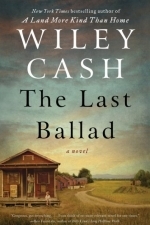
The Last Ballad
Book
The author of the celebrated bestseller A Land More Kind Than Home returns with this eagerly awaited...
Historical fiction
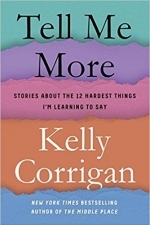
Tell Me More: Stories about the 12 Hardest Things I'm Learning to Say
Book
A warm, insightful look at the twelve phrases that strengthen and sustain our relationships, from...
women mind and body
BankofMarquis (1832 KP) rated Don't Worry Darling (2022) in Movies
Oct 1, 2022
Plays it Too Safe
The previews for the new thriller/mystery DON’T WORRY DARLING shows a housewife in a seemingly idyllic 1950’s paradise community - but something about this seemingly perfect paradise is off - an intriguing premise for a film and one that I am a sucker for. Clearly, it will have some sort of twist that explains the weird situation our heroine is in. Most of the time, I can glean what that twist is going to be, but I gotta give DON’T WORRY DARLING credit, I couldn’t guess this one.
Starring Florence Pugh (BLACK WIDOW) and Harry Styles (of ONE DIMENSION fame), and Directed by Olvia Wilde (who also has a supporting role in this film), DON’T WORRY DARLING is a passable mystery/thriller with a plot twist that “plays fair” with the incongruities early in the film.
This is a safe film - and one that is safely paced - and that is the very definition of “damning with faint praise”. It doesn’t “lean into” the weirdness of the situation or the resultant take on the Male Dominated society of the 1950’s that marginalizes women into subordinate helpers.
Writer Katie Silberman (BOOKSMART) and Director Wilde just are too tame and cautious in their approach to this material and the film drags, slightly, in the first part of the film - a part of the film that could have used more injection of life into it by showing stronger instances of incongruity caused by “the twist” later on or stronger resistance by the Pugh character to break out of the background role her character is bound to, but they shy away from it.
Saving this film is the central performance of Pugh as housewife Alice who is slowly beginning to realize that something is wrong with this piece of heaven. Chris Pine is enigmatically mysterious as Frank, the boss of this experimental community while Wilde, Gemma Chan (THE ETERNALS) and Nick Kroll (WHAT WE DO IN THE SHADOWS) all provide solid - if unspectacular - supporting work.
Styles, on the other hand, works hard at his character and to hold his own in his scenes with Pugh, but he just isn’t on the same level of acting ability as Pugh, so his character falls short and seems thin in comparison to hers.
A film that could have been better if the Director and Writer had the courage of their commitments and pushed the envelope further AND if they could have found a counterpart performer to Pugh…but at least it does come up with an original and unique twist.
But, as it is, DON’T WORRY DARLING, falls squarely into “it’s fine, a good way to spend a few hours” category.
Letter Grade: B
7 stars (out of 10) and you can take that to the Bank(ofMarquis)
Starring Florence Pugh (BLACK WIDOW) and Harry Styles (of ONE DIMENSION fame), and Directed by Olvia Wilde (who also has a supporting role in this film), DON’T WORRY DARLING is a passable mystery/thriller with a plot twist that “plays fair” with the incongruities early in the film.
This is a safe film - and one that is safely paced - and that is the very definition of “damning with faint praise”. It doesn’t “lean into” the weirdness of the situation or the resultant take on the Male Dominated society of the 1950’s that marginalizes women into subordinate helpers.
Writer Katie Silberman (BOOKSMART) and Director Wilde just are too tame and cautious in their approach to this material and the film drags, slightly, in the first part of the film - a part of the film that could have used more injection of life into it by showing stronger instances of incongruity caused by “the twist” later on or stronger resistance by the Pugh character to break out of the background role her character is bound to, but they shy away from it.
Saving this film is the central performance of Pugh as housewife Alice who is slowly beginning to realize that something is wrong with this piece of heaven. Chris Pine is enigmatically mysterious as Frank, the boss of this experimental community while Wilde, Gemma Chan (THE ETERNALS) and Nick Kroll (WHAT WE DO IN THE SHADOWS) all provide solid - if unspectacular - supporting work.
Styles, on the other hand, works hard at his character and to hold his own in his scenes with Pugh, but he just isn’t on the same level of acting ability as Pugh, so his character falls short and seems thin in comparison to hers.
A film that could have been better if the Director and Writer had the courage of their commitments and pushed the envelope further AND if they could have found a counterpart performer to Pugh…but at least it does come up with an original and unique twist.
But, as it is, DON’T WORRY DARLING, falls squarely into “it’s fine, a good way to spend a few hours” category.
Letter Grade: B
7 stars (out of 10) and you can take that to the Bank(ofMarquis)
